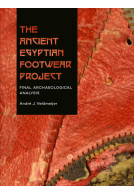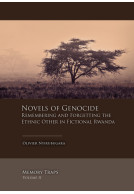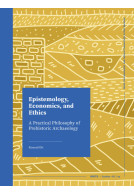Intergenerational transmission of criminal and violent behaviour (Paperback)
Imprint: Sidestone Press
Pages: 198
ISBN: 9789088901010
Published: 28th February 2013
Script Academic
Pages: 198
ISBN: 9789088901010
Published: 28th February 2013
Script Academic
Please note this book may be printed for your order so despatch times may be slightly longer than usual.
You'll be £35.00 closer to your next £10.00 credit when you purchase Intergenerational transmission of criminal and violent behaviour. What's this?
+£4.99 UK Delivery or free UK delivery if order is over £40
(click here for international delivery rates)
Order within the next 9 hours, 20 minutes to get your order processed the next working day!
Need a currency converter? Check XE.com for live rates
(click here for international delivery rates)
Order within the next 9 hours, 20 minutes to get your order processed the next working day!
Need a currency converter? Check XE.com for live rates
‘The apple doesn’t fall far from the tree’, ‘Like father like son’, ‘Chip off the old block’. All these idioms seem to suggest that offspring resemble their parents and this also applies to criminal behaviour. This dissertation investigates mechanisms that might explain why children with criminal parents have a higher risk of committing crime. Several explanations for this intergenerational transmission have been contrasted, such as social learning (imitation of behaviour), official bias against certain families, and transmission of risk factors. Sytske Besemer investigated this in England as well as in the Netherlands.She answers questions such as: does it matter when the parents committed crime in the child’s life? Do more persistent offenders transmit crime more than sporadic offenders? Do violent offenders specifically transmit violent behaviour or general crime to their children? Might the police and courts be biased against certain families? Could a deprived environment explain why parents as well as children show criminal behaviour? Does parental imprisonment pose an extra risk?This dissertation is the first study to specifically investigate these mechanisms of intergenerational continuity. The study is scientifically relevant because of its breadth, integration of conviction data as well as data on self-reported offending and environmental risk factors, its comparative design and the long periods over which transmission is investigated. Furthermore, the dissertation has important policy implications. It demonstrates how penal policy designed to reduce criminal behaviour might actually increase this behaviour in the next generation. This is especially important since Western countries such as the United Kingdom and the Netherlands show an increasing trend towards more punitive policies.Sytske Besemer studied psychology and criminology at Leiden University and at the VU University Amsterdam before embarking on a PhD at the Institute of Criminology at the University of Cambridge, UK. She has recently been awarded a NWO Rubicon fellowship to conduct post-doctoral research at UC Berkeley into intergenerational continuity of criminal behaviour, family dynamics, and the criminal justice system.
Other titles in Sidestone Press...















